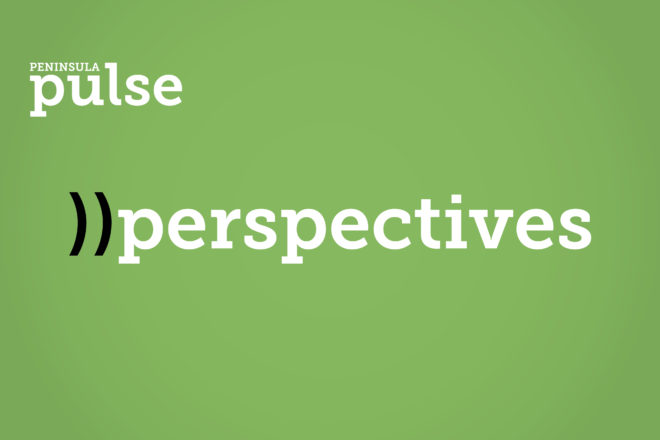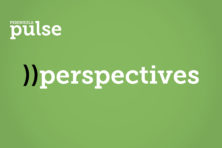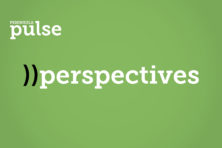Pulse of Philanthropy: We Can All Be Philanthropists
- Share
- Tweet
- Pin
- Share

by BRET BICOY, President and CEO, Door County Community Foundation, [email protected]
Several decades ago, in a community far away from our beloved Door County, I was involved in raising money to renovate a local neighborhood center.
I was giving a tour to one of that community’s great philanthropists when an elderly woman came up to me, stuffed a pledge envelope in my hand, then hurried away almost as if she were embarrassed. I knew the woman because she led a story time and read books to young children, including a few of mine, who would gather around her on the floor. She was part of a federal-government program that provided a stipend to senior citizens who volunteered; it was an effort to keep them out of poverty.
If my story were from a Hollywood movie, the woman’s pledge envelope would have contained a commitment for a million dollars. Instead, it held a $20 bill.
Eventually, we raised the money necessary to renovate the neighborhood center, and the great philanthropist I had walked through the building provided the single most important gift that made everything possible. Yet as a percentage of their respective wealth, that elderly woman’s gift of $20 was probably a far greater financial sacrifice. It’s been decades since that campaign, but I still wonder often which of those donors was the greater philanthropist.
This story came to mind when I was writing my most recent column about the philanthropy of MacKenzie Scott. As a reminder, Scott is a co-founder of Amazon and has been in the news of late for having donated an incredible $12 billion to charity. When announcing yet another round of remarkable gifts on Dec. 8, 2021, she wrote on her blog about the concept of “semantic narrowing.”
To linguists, semantic narrowing is when the meaning of a word becomes less general or inclusive than its earlier definition. For instance, centuries ago, an “undertaker” was anyone paid by another person to undertake any task as assigned. Today, an undertaker is one who undertakes the very specific task of preparing a body for a funeral and carrying out the funeral.
Similarly, hundreds of years ago, the word “deer” referred to any kind of four-legged animal that walked the earth. Today, a deer is a very specific type of four-legged animal of the taxonomic family Cervidae.
Scott wrote about her discomfort in being referred to as a philanthropist.
“A lifetime of cultural references associated [the word ‘philanthropist’] with financially wealthy people who believed they knew best how to solve other people’s problems,” she wrote. “Since I did not believe myself to be such a person, I had always felt more kinship with people who offered a couch when someone said they needed a couch.”
Yet she was surprised to learn that the dictionary definition of the word “philanthropist” was far simpler and more beautiful than she had ever realized. Merriam-Webster defines a philanthropist as “one who makes an active effort to promote human welfare.” It defines “philanthropy” as “goodwill to fellow members of the human race.” Nowhere in those definitions is there a requirement that the person make billion-dollar contributions.
Consider the etymology of the word “philanthropy.” A 15th-century definition was a “love of humankind, especially as evinced in deeds of practical beneficence and work for the good of others.” That concept is almost lyrical in its beauty.
In most cases of semantic narrowing, there is no diminishment of the word – merely a greater specificity as to what it has come to mean in a modern context. A “deer” is no longer what we call all four-legged animals; it now refers only to a specific type of four-legged animal. Yet as we have begun to narrow the definition of the word “philanthropy,” we are losing the most extraordinary and magical aspects of it.
“The problem is that half the beauty of the original meaning of ‘philanthropy’ was in its breadth,” Scott wrote. “It’s as if we had taken the word ‘love’ and reduced it to mean only familial love, or only romantic love, cutting out the love we feel for friends, or food, or sunsets, or strangers.”
Goodness knows that our world needs the remarkable generosity of billionaires such as Scott if we are to overcome our most intractable problems. But when we narrow the meaning of the word “philanthropy” so that only the wealthiest among us can be considered philanthropists, we are diminishing the very thing that makes philanthropic giving so beautiful.
“How much or how little money changes hands doesn’t make it philanthropy,” Scott wrote. “Intention and effort make it philanthropy.”



